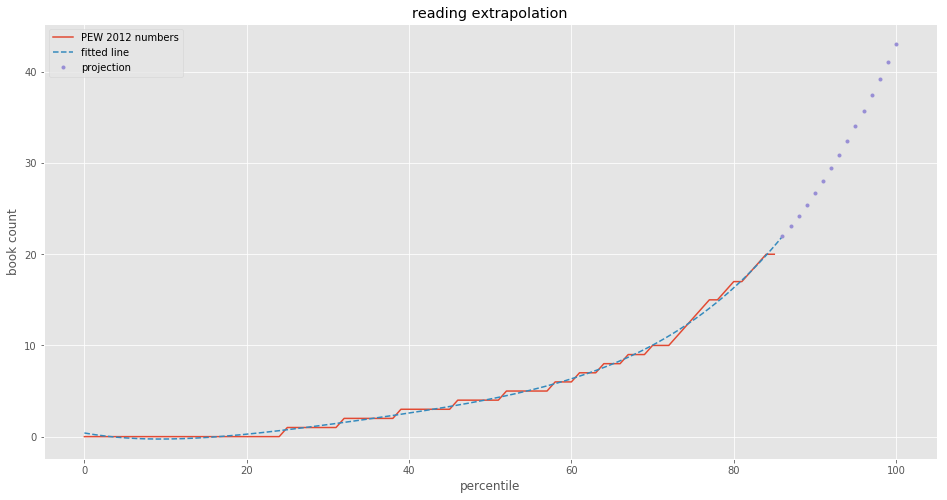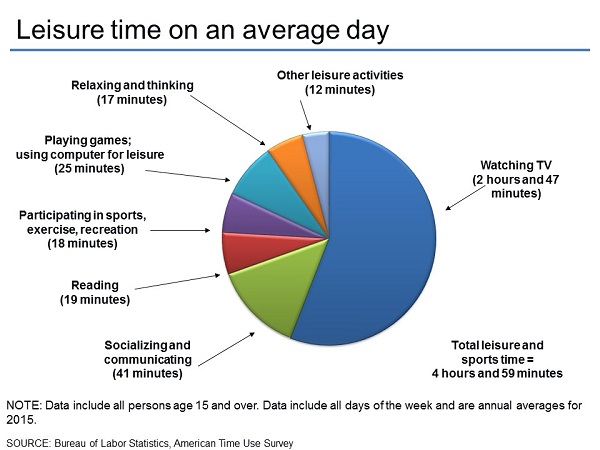… and how’re you spending your mind?
The ladies will have to enlighten or mislead us further regarding the things they talk about when amongst themselves, I can at least speak to topics covered in the company of men. Naturally, camaraderie and enthusiasm will influence which subject is picked out at any one moment among sports, money, politics, women (and what the heck they are talking about in the bathroom together), tech and consumer goods, other friends and acquaintances, work, and entertainment. Under the final category fall movies, television/streaming shows, music, and the internet in general. Categories within categories that I doubt need unpacking. In many respects this covers a large amount of available subject matter. Missing from this wide net are far too often novels, interesting articles not having to do with celebrity nonsense, and anything of a higher level of interest. Let us set aside the more highfalutin considerations of culture and deal instead with the most, and at least still, democratic resource, the book.
The act of reading may be argued to have never been higher with the explosion of online content. However, the quality and saturation of this text is another matter. Reading cereal boxes and Bazooka Joe comics is not reading James Joyce. It is estimated that the average American reads 12 books a year. As with many non-natural phenomena we find this to be more Pareto then Gaussian distribution, several percentiles of super readers and a long tail of people who hardly ever get through a title in the course of a year. A common complaint that I hear, used to both excuse and lament the inability to get around to the things that one wants to, is being too busy. It is a practical necessity to proclaim being too busy today, as if this validates our efforts and does not highlight a lack of control.

Data Source: PEW (2012) 1
We reflexively see busy as a badge of honor instead of as an indication of being victims of vicissitude. What many of us are too busy with, or not sufficiently busy to keep away from, is social media. On average (again we can expect super users, or the super used) we see daily usage of 30 minutes on Facebook alone. For the less mathematically inclined that comes to 3.5 hours a week of checking timelines, posting status updates, and falling deeper into a rabbit hole of algorithm sorting and curated content whose ultimate purpose is to keep you on site as long as possible to serve you up another advertisement. This is an online twirl through a casino, where the longer you play the further the odds lean toward the “house“ and the likelier you end up a loser (no quotes necessary). The reference to gambling is no exaggeration (Addiction by Design). The more we become enlightened by the techniques at use in retaining our attention (e.g. unpredictable payouts in the form of updates, likes, and posts) the clearer we see that we are rats in a large and profitable social experiment (Tristan Harris).
These practices cater to the sites’ goals while deteriorating our ability to concentrate This deterioration in focus is a serious obstacle to our ability to think clearly, deeply, and for extended periods. Additionally, the frantic pace that responsive content puts us in impacts adversely our down time, those precious moments when great ideas come together (think Eureka!). We are distracting ourselves to such an extent that office workers now have the attention span of a goldfish. This is corrosive to our home, work, and recreational lives. All critical elements to a fulfilling existence, including, especially perhaps, the last one.
A sort of rehab is required to get back to a more purposeful means of living, taking back active control of our attention as opposed to having it taken from us. The word rehab is meant more concretely than simple metaphor and is used in all sincerity (Irresistible). Each of us resides on a spectrum with respect to how far gone we are. Some will need a cold turkey approach, no doubt stumbling several times before succeeding (the strongest indication of succeeding at quitting smoking is the number of attempts), others can wean themselves with no problem. The first step would be extracting ourselves from the situation, second or soon after would be to replace the activity with one we deem more productive or rewarding. Among the many candidates, and by no means the best or only one depending on the individual, is reading. Preferably a physical book.
We are each under a limitation of time and it is important to work with this and stay within realistic bounds. Setting up aspirational goals that are unrealistic will scuddle our efforts before they even begin. Additionally, it is worth pointing out that we are not robots, different things make us tick and reading may not be the cure all remedy for everyone. However, I believe it requires no argument that we could spend our times better, more purposefully.
Data Source: TED: Why our screens make us less happy 2
Relaxation and mindless diversion is absolutely necessary but when distraction becomes the main course instead of the occasional dessert then our nutrition is out of whack resulting in predictably poor outcomes. Diet is an apt parallel to our information intake, especially dessert and sugar. As humans we evolved in a world of scarcity. Among these were scarcity of energy and information. We have been for nearly all of our existence as a species in need of more power over and knowledge of the world. Today we find ourselves in a world quite different from the one we adapted to and emerged from. Instead of scarcity many of us are blessed with abundance, glut even. However, we have been slow to appreciate this, which is understandable considering the circumstances we evolved in and our many cognitive biases, but having seen the warning signs, obesity and social ineptitude/isolation, it is time to use that noggin of ours to come up with effective ways of maneuvering in the new environment.
What is dear now is no longer the book but the time and attention needed to read it. There is an abundance of quantity, quality if you know where to look, and access. Additionally, with the improved speed of communication the friction of acquiring a book have dropped to zero or as near to instantaneous as your download speed allows. Books are just one source of information and entertainment made available and it should be no surprise that in the short term it is difficult to compete across large swaths of people when you also have images, videos, and responsive content. These other content are like sweetened desserts in comparison to natural fruits. As the metaphor suggests, the amount of sugar delivered by these media is much higher but it is also artificial, creating a need for higher doses that in the long run prove corrosive to our health. Books are the natural way of retaining sweetness in our mental diet. The tolerance that they build up has to do with increased concentration, vocabulary, the ability to deal with boredom (I suppose fiber might be the apt parallel here), and powers of comprehension. Much of the other stuff is junk food for the brain and as with teeth, if left unattended will wreck the things we cherish. This is no holier than thou rant. We all know junk food and junk entertainment. This is hopefully an inconvenient reminder to help you stop for a second before mindlessly having another Twinkie.
I am not a big fan of the epic effort or gesture. Perhaps applicable and effective in certain situations I would recommend some reserve and not going all gung ho. Besides, the grand gesture in this situation will ultimately be the way you spend your time, over time. Simply start somewhere. Begin reading once a week, maybe for just 15 minutes. Grow both numbers overtime. The brain is plastic not elastic; it will not simply snap back but will rather require sustained effort over time (i.e., five hours of binge reading will most likely be less effective than 10 days of 30 minutes each, or better yet 20 days of 15 minutes). You will be getting through whole books in time and retraining your mind’s ability to steady itself.
Data Source: PEW (2012)
Just for kicks we can imagine reclaiming all 3.5 hours a week from social media to reading. Instead of the 170+ hours (a month’s worth of full-time work) given over to a “social” platform you will be, once the mind is back to what it was pre-digital toxication, reading ~300 words per minute. Assuming 100k pages/book, you may end up reading 30 books a year. Now ask yourself seriously if having 30 more books, on topics completely of your choosing and interest, under your belt will not make you more fulfilled, relaxed, thoughtful, informed, and a better conversationalist.
Let us round out the reminder and finish with a plea: the internets and socials are nonsensical, silly, irrelevant and, worse of all, distracting us from the fact that we are all running out of time. Do yourself a favor, put down the crack-berry, pick up a book, and live on (your) purpose.
Notes
1 PEW 2012:
- Claims 6 as the median, but this is for those who read at least one book in previous 12 months.
- When including, zero filling, the 25% of people who read no books the median gets pushed down to 4; this approach is “validated” by later PEW reports (2016) where they quote the same median.
- 14% read 21+ book.
- The previously provided 2012 data was used to:
- Plot the numbers.
- Fit a line to get an idea of trend/distribution.
- Projected out for the 21+ books reading crowd.
- The upper end, topping out at 43, is clearly too low but overall this is reasonable place to start from. ↩
2 Chart legend:
- DARK BLUE: sleep, 7.5-8 hours
- MED BLUE: work, 8.5-9 hrs
- LIGHT BLUE: eating, bathing, child rearing, 3 hrs
- WHITE: personal time/space (4-5 hrs) the place where we do the things that make us individuals; hobbies, close relationships; matches BLS’ leisure time measure:

Data Source: U.S. Bureau of Labor Statistics
- RED: percent of free time dedicated to screen time beginning in 2007, when Apple introduced the 1st iPhone; ~3.5 hours by 2017
- YELLOW, 2017: the thin sliver where the magic happens, “where you humanity lives” ↩